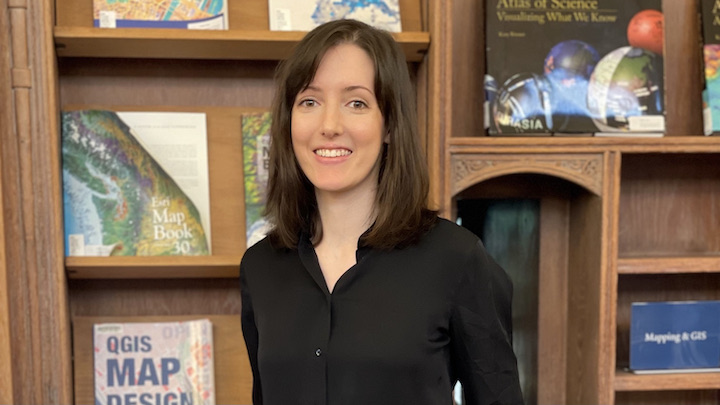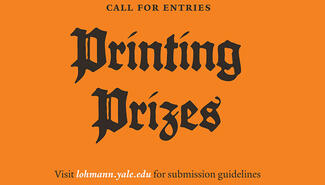New DHLab manager helps researchers explore “different and possibly conflicting realities”
For Kayla Shipp, who joined Yale Library on Aug. 1 as the Digital Humanities Lab program manager, the most interesting challenge ahead is helping faculty and students to identify when they may have a digital humanities project—but just haven’t realized it yet.
“I want them not to rule themselves out,” she says. “I want them to see how digital tools and methods will allow them to approach their work as interactive, public facing, and self-contradictory.”
As program manager, Shipp will help conceptualize, manage, and deliver digital humanities programs and services in-person and virtually, including quantitative and algorithmic methods, text mining, image analysis, network analysis, dataset curation, humanities mapping, critical big data studies, and related areas.
“Digital research objects and representations are uniquely poised to show change over time or space, or any kind of ambiguity,” she says. “There’s undue pressure on researchers to resolve contradictions before presenting conclusions. Digital humanities projects offer ways to make the contradictions visible and to represent different and possibly conflicting realities.”
Shipp comes to Yale Library from Emory University’s Center for Digital Scholarship, where she worked as a digital scholarship specialist. She has partnered with museums, authors, and researchers to build interactive digital objects and publications.
One of her projects was working with the Atlanta History Center to develop a suite of augmented reality and web apps that would allow museum visitors to interact with a newly restored 49-foot-tall, 133-year-old cylindrical painting depicting the Battle of Atlanta, a major engagement of the Civil War. “We had to find the digital in a nineteenth-century painting,” she explains. “With augmented reality, we were able to bring sound, movement, action and dynamic digital narratives to the visitor’s experience of the work.”
For another project she represented four Emily Dickinson poems as “mostly unpublished ephemeral manuscript poems … with alternate words and phrases in the margins.” By stripping away the arbitrary choices of Dickinson’s editors, the project invites readers to “encounter the poems in this ambiguity, spinning out the many meanings embedded in the poems’ networks of internal possibility.”
Shipp earned her Ph.D. in English at Emory and a M.A. in Digital Humanities at King’s College London, studying the poetics of code and virtual space and the intersection of material culture and technology. Her work, which can be seen on her personal website, has been supported by the Andrew W. Mellon Foundation and the Fox Center for Humanistic Inquiry.
For more information about digital humanities services and support at Yale Library, email kayla.shipp@yale.edu.
—story and photo by Patricia M. Carey



